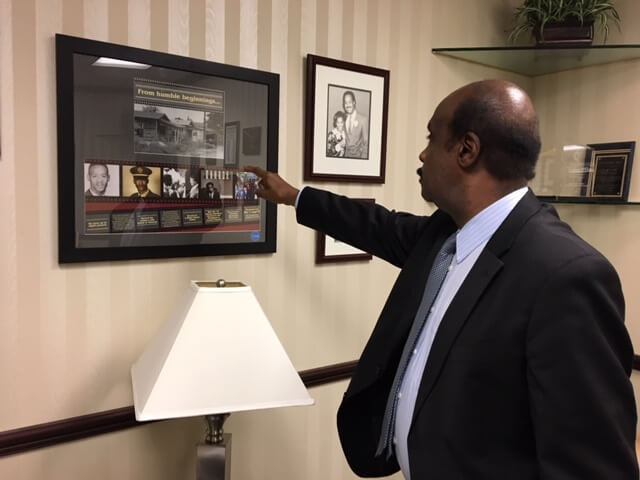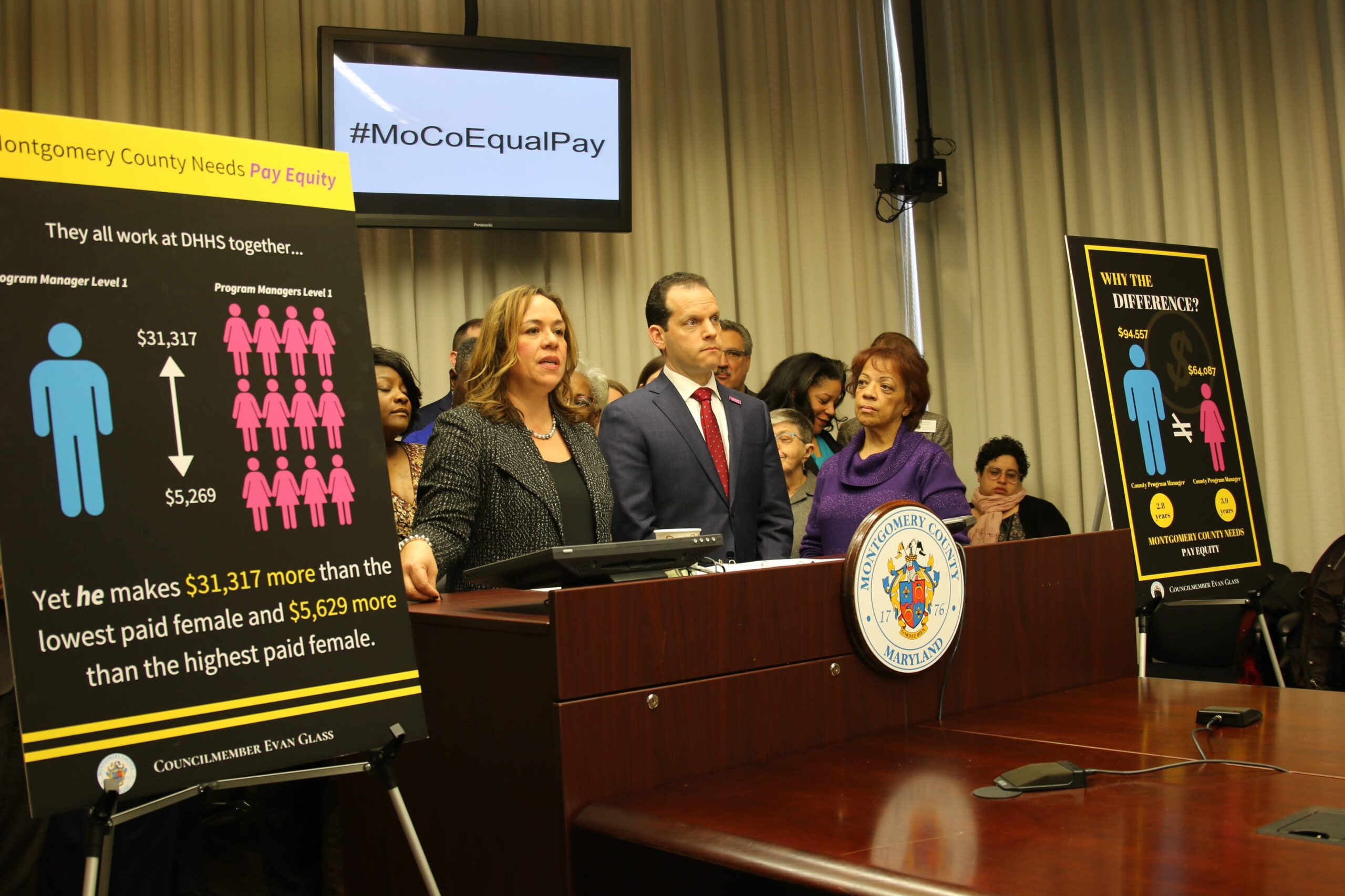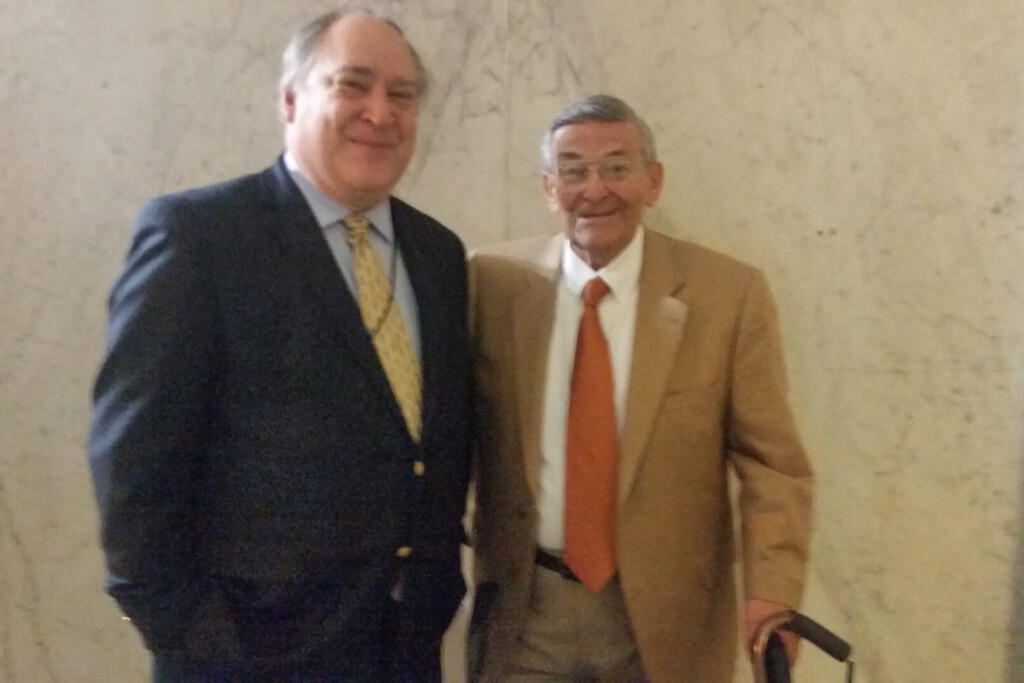Leggett: I Was the Right Man for Tough Times

Montgomery County Executive Isiah Leggett (D) leaves office on Monday, after 12 years on the job. Councilman Marc B. Elrich (D) takes the oath of office on December 3 at noon.
Leggett sat down with Maryland Matters reporter Bruce DePuyt recently for an extended look back at his ground-breaking career.
The first African-American to hold elective office in Montgomery County, Leggett served on the County Council from 1986-2002, became chairman of the state Democratic Party in 2002, and was elected executive in 2006, 2010 and 2014.
The interview focused on the challenges brought on by the Great Recession, the sexual harassment trial that nearly derailed Leggett’s political career, and Kathleen Kennedy Townsend’s decision not to choose Leggett as her running mate.
They also discussed Montgomery County’s chronic struggle with traffic and the lack of affordable housing, and the role race plays in American politics.
This Q&A has been lightly edited for brevity and clarity.
Part I of two parts.
Maryland Matters: You left elective politics in 2002, but you returned four years later to run for county executive. Why?
Ike Leggett: In 2002, I was pretty much through with politics, I thought, at that point. I loved teaching. I was reluctant the first time [in 1986] to get into this. I helped form an organization to encourage African-Americans and other minorities to run for office because at that time we had never elected any minorities to any of the political positions.
The numbers were not good. African-Americans were only 6 or 7 percent of the county’s population at that time. Latinos were maybe 4 percent. Asians like 2 percent.
But everyone turned to me and said you’re the most ideal candidate we could run. Roscoe Nix, Hanley Norment, Sid Kramer, Bruce Adams, Esther Gelman were like, ‘Get out and do this.’
MM: You say it was such a bleak environment, and yet you never lost a race in all these years.
Leggett: We were so concerned about [race being a factor] — my campaign manager Sue Schoenberg and I — that we came up with the idea of not putting my photograph on my literature for a while. There was a name —
MM: But no picture, out of fear of that a non-white candidate wouldn’t get support?
Leggett: Yeah. I had witnessed this with other minority candidates, voters would toss the brochure in the trash or never look at it seriously. What we wanted them to do was turn the page to look at your background and your experiences. And when you did that you saw that this person was just eminently qualified. Probably more qualified than anyone else who was running.
And in terms of issues, [they would find] there was nothing in there that was frightening or disturbing. In later elections, we added a photograph to my literature.
MM: With Doug Duncan leaving after three terms, the race for executive in 2006 was wide open.
Leggett: Duncan had decided to run for governor [in 2006]. And several people were either thinking about running for county executive — [County Councilman] Steve Silverman to be sure — or were trying to decide. And I was urged again, pushed very hard [to run]. Steve Silverman was a good friend. But I was urged by others to come back and do it, and I thought about it long and hard.
Two things pushed me [into it]. One — I saw the county changing, and we needed to manage that. I saw some financial challenges, from transportation to schools. Issues that I could bring some leadership on.
On top of that, I thought that if I failed to [run], I would later regret it. Here it is, you’re eminently qualified for the job. You recognize some challenges that need to be addressed, and you had this historic moment that you can make a bold statement about this county and its future.
I realized I would wake up some morning, years from now, and look at myself in the mirror and say, ‘You had a chance to do something about it. What was I thinking?’
MM: You picked him for your cabinet, to be in charge of economic development. Why?
Leggett: Because he and I had friends. He was an immensely talented guy. I was saddened that the two of us ran at the same time. And if you look at his background, that’s sort of his strength — economic development, business issues, especially small businesses.
It caught some people by surprise that I would ask him. But when I looked at the people that were out there, that he was a guy who understood the business community very well and he understood government and how to get things done. And therefore he would be a top choice.
MM: You chaired the County Council three times. One of my memories from that era was watching you go from colleague to colleague, having whispered conversations before a big vote, sometimes rescuing something that looked like it was going down to defeat.
Leggett: I was on the council when we moved from seven members to nine in 1990, and two Republicans won — Nancy Dacek and Betty Ann Krahnke. We only had six committees. I selected Betty Ann Krahnke to chair the Public Safety Committee. And people raised eyebrows about that, even though she was very talented person.
To get over our charter limit for budgets and taxes and all that kind of stuff, all it required was for three people to say no. And you have two Republicans and [the late] Bill Hanna…
MM: ..a fiscally conservative Democrat..
Leggett: Yeah. And I realized that they could get together and thwart any budgetary process. You can’t do that very well if you’re a committee chair. I never said that to anyone publicly except for you today. So it was good in terms of the council and our ability to work together but it always kept her in the process and the Republicans part of the process.
Even when I wasn’t the chair, people looked to me to be the galvanizer or consensus-builder. But that doesn’t come easily. And it’s hard to obtain. You have to know what you’re doing. People have to trust you. And they have to believe that you can pull it off. So if I say, I’m going to try to craft this deal this way, they have to believe that if you go to someone, you have a fighting chance of cutting that deal.
MM: Was that part of the job that you enjoyed?
Leggett: It just sort of came natural. Growing up in the South, at the height of segregation and Jim Crow, I remember something that happened on the football field in high school. I came up with a system where the quarterback called all the plays. In addition, I had come up with the plays in the first place. The blocking assignments and all of it. I was able to do that as a tenth grader. I was basically an offensive coordinator.
I noticed that the other quarterback on my team, who had a better arm, was very loud and flamboyant. The coach called him aside and said, ‘Young man, you don’t have to do that. You have the ball in your hand most of the time. Attention is already on you. So you don’t have to bring attention to yourself. Just go out and play the game.’
So for me, I said, ‘OK, I just need to be the quarterback. The attention will come. I just play the game.’ So if you go back and look at my life, it’s been quietly, diplomatically putting yourself as the quarterback. Quarterback, military captain, student government president, head of the ROTC brigade, law professor, assistant dean, White House fellow, Council member, county executive, chair of the party, they’re all quarterbacks.
MM: The old picture of your childhood home, in your waiting area, is quite striking.
Leggett: My life is a remarkable American story. I was one of 13 kids. I grew up in abject poverty. This office suite is bigger than our entire house when I was young. My rise comes as a result of a lot of help, support from people, and hard work.
I had to beg my way into college. I was rejected for a student work project. But they allowed me to work with the maintenance crew. That’s how I was able to stay on campus, by cutting grass and picking up trash.
MM: The economy collapsed early in your tenure. Talk about the challenges that presented.
Leggett: We were trying to overcome the tremendous cost increases that had occurred a few years [before I was elected]. And on top of that came the Great Recession. I eliminated 1,250-plus positions in county government. I reduced or eliminated cost-of-living adjustments. I reduced health benefits. I reduced retirement benefits. We furloughed county employees.
We went from a 2.1 percent cash reserve, which was extremely low, to a 9.4 percent reserve now, and we project it will be 10 percent by next year. That meant that we were down to just over $100 million in cash reserves to over a half a billion dollars as I leave office. What I just described to you was painful and difficult.
There was no sugar-coating this. People are reluctant to believe that you have to do all these things in a comparatively wealthy county. I said, ‘Yes, you have to do them.’ And I said that at the beginning of the recession. Once you get deeper into the recession and you see everything around you falling, it’s easier to explain to people what you need to do. But it’s hard when you’re doing it at the beginning.
MM: You say you had to make a lot of difficult decisions. Were some moments so awful you wished you hadn’t run for county executive?
Leggett: Yeah. That was one of them. I was like, ‘I didn’t sign up for this.’ It was like, ‘You took the wrong time to be county executive.’ But later, I thought no, it was probably the right time. Because it was probably the most challenging time in the county’s recent history. There was enormous pressures and you needed a leader who could bring people together, who is not going to easily panic, and was able to get us through this. So it was probably the best time to be county executive.
The test of leadership is what you do under live fire, not on the practice field, not in the good times. This has been live fire. There were no rehearsals you could have for that recession. You don’t get a do-over. You make the decisions and you are stuck with those decisions.




 Creative Commons Attribution
Creative Commons Attribution